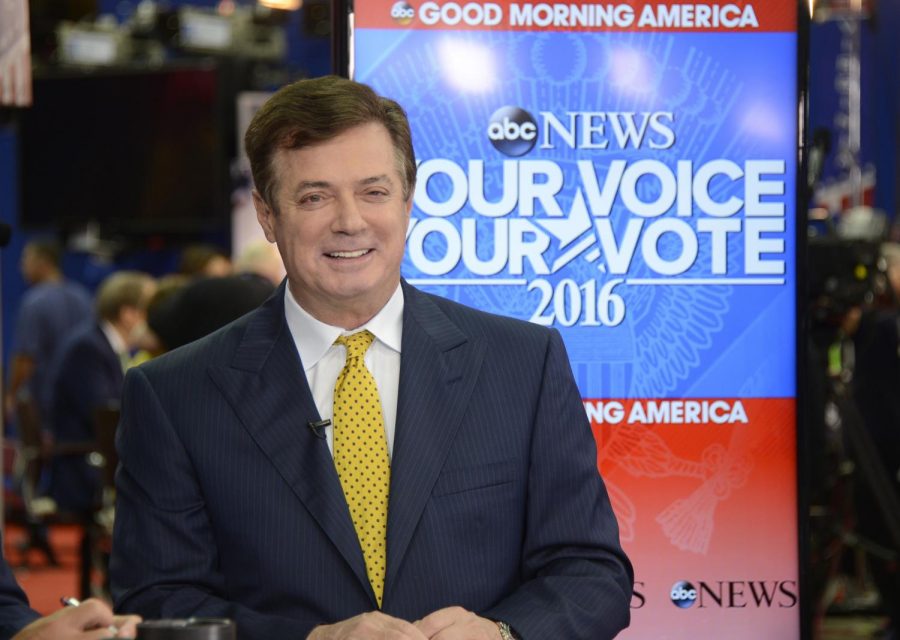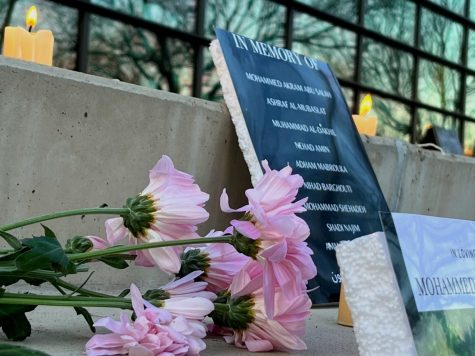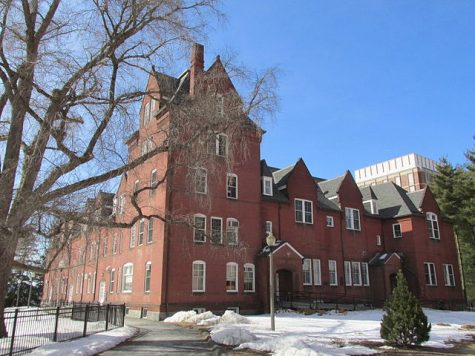This week in politics: 10/30-11/5
The leading story in national politics this week is the FBI investigation into potential Russian interference in the 2016 election, which produced its first charges on Monday morning. While the fallout of these indictments could be significant, they’re likely just the first domino to fall in a long, embittered battle between Mueller’s team and the Trump administration.
1. Manafort, Gates and Papadopoulos indicted
Special Counsel Robert Mueller’s investigation into potential ties between the Trump campaign and Russia produced an explosive first round of charges this week, when three members of the Trump campaign were formally indicted. Former campaign manager Paul Manafort and his associate Richard Gates face 12 separate charges. According to The Independent, the charges most notably include conspiracy against the United States, money laundering and failure to register as a foreign agent.
Separate charges were brought against George Papadopoulos, a former foreign policy adviser to Trump. Papadopoulos was secretly arrested at Dulles International Airport in July, and he pleaded guilty to lying to the FBI about his connections with Russia, per CNN. Due to his guilty plea and cooperation with authorities, Papadopoulos received a plea deal.
The White House has tried to distance itself from the three indicted campaign members, as Sarah Huckabee Sanders said the indictments have “nothing to do with the president” (via NPR).
While it’s possible that these indictments are the last that Mueller’s probe will produce, it’s far more likely that these are just the beginning. Though it may be a lengthy process, Mueller has established leverage over future subjects of questioning by sending a clear message: cooperate as Papadopoulos did, and you’ll be protected. But by throwing the book at Manafort and Gates, Mueller showed that he won’t go easy on anyone who lies or impedes the investigation in any way. While this may be just the beginning of a long process, it’s a major step toward uncovering the full extent of collusion between Russia and the Trump campaign.
2. Donald Trump begins Asian tour
The president kicked off a five-country trip through Asia on Saturday, according to CNN. President Trump landed in Japan, the first stop on the 12-day tour. The New York Times called his first public address a “campaign-style” rally, bolstering the administration’s hard-line stance against North Korea with references to “American resolve.” Per Politico, the primary goal of this trip is to increase pressure on Asian countries to take steps towards permanently eliminating the Kim regime’s nuclear weapons, as well as the ability to nuclearize in the future. Trump will also be confronting other issues during his nearly two-week visit, including “Trump’s desire to challenge what he deems unfair trade practices,” according to Andrew Restuccia of Politico.
Having placed such a heavy emphasis on the importance of confronting North Korea over nuclearization and taking an absolutist position in regards to eliminating every single nuclear weapon in North Korea’s arsenal, this trip is of the utmost importance to the Trump administration.
3. Donna Brazile’s memoir sparks controversy among Democrats
While the Democratic Party attempts to mend fences with an eye towards 2018 midterms and the 2020 presidential election, former interim Democratic National Committee chairwoman Donna Brazile has reopened some of the bitter wounds of 2016 in her new memoir. According to CNN, Brazile considered on multiple occasions trying to replace Hillary Clinton as the Democratic nominee with a bill comprised of former Vice President Joe Biden and New Jersey Senator Cory Booker. CNN reports that Brazile considered making this change as late as September 2016, but ultimately decided against it because of what Clinton’s nomination meant to women.
While Brazile would not have been able to make this decision unilaterally due to the rules about making such a move, it speaks volumes about the divisiveness that persists within the Democratic party. Democrats were largely able to rally together around Clinton, but many liberal voters opted for third-party options or simply choosing not to vote. It’s unclear yet as to how Clinton’s failure in 2016 and the continued division among Democrats will impact their strategy in 2018 and beyond, but it’s fair to wonder if the party can continue down the same path expecting different results.
Email John at jdcoakley@umass.edu, or follow him on Twitter @JohnDCoakley.











